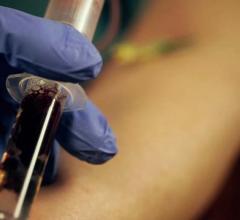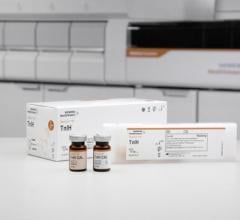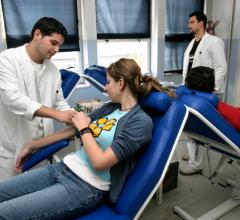
August 2, 2013 — Abbott announced results from a study evaluating its High Sensitive Troponin-I (hsTnI) assay. The study, conducted by researchers at Brigham and Women's Hospital, demonstrated that Abbott's hsTnI blood test (currently for research-use only in the United States) may help doctors predict which patients presenting with symptoms of a heart attack, such as severe chest pain, are at a higher risk for having a heart attack 30 days later.
A concern for patients who present with severe chest pain is that they are more likely to experience another cardiovascular event within a few weeks or months. Researchers at Brigham and Women's Hospital evaluated the performance of a hsTnI assay (Abbott, Architect) with the performance of a fourth generation troponin T assay (Roche, TnT) among 4,695 patients presenting with severe chest pain and found that the hsTnI assay identified more patients at higher risk of recurrent heart attack, even at very low troponin concentrations.
Cardiac troponin, a protein found in the heart muscle, is considered the preferred biomarker used to identify suspected heart attacks, because it can detect injury to the heart. Abbott's Architect Stat hsTnI assay can measure very low levels of the protein, which allows doctors to evaluate whether or not patients are having a heart attack within two to four hours after presentation. This faster evaluation could allow doctors to reduce the time to diagnosis and treatment by several hours when compared to standard troponin tests.
For more information: www.abbott.com


 October 09, 2019
October 09, 2019 









